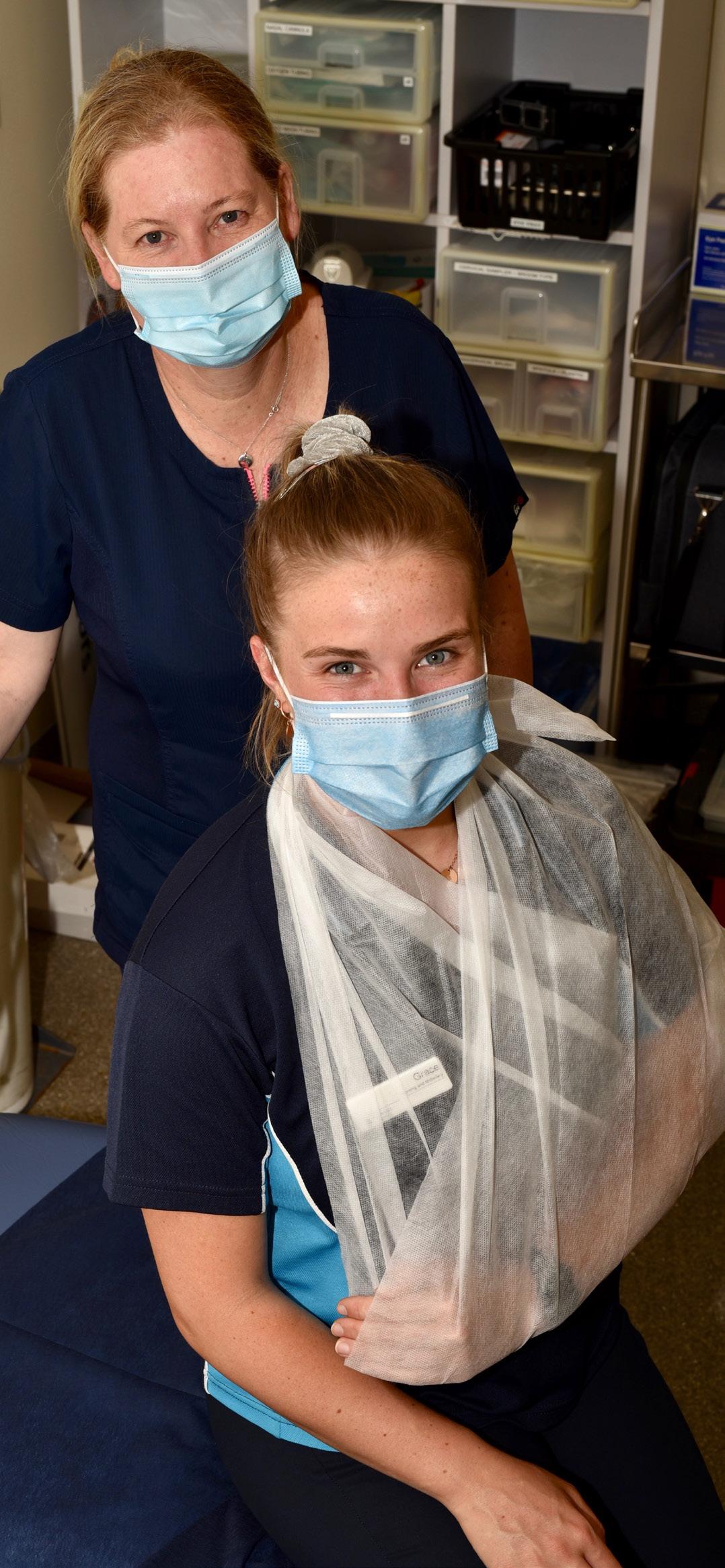
3 minute read
Student nurses get primary health care experience as COVID restricts hospitals
MARIA PETRAKIS, PR & Corporate Affairs Advisor, Australian Primary Health Care Nurses Association (APNA)
Grace Mackay’s ambition is to be a flight nurse with the Royal Flying Doctor Service, a job that would fly her to patients across thousands of kilometres of the Australian outback. Her primary health care placement with Ti-Tree Family Doctors in Mt Eliza this year was one important step towards that goal.
‘I didn’t realise the diversity of what it offered,’ said Grace, a nursing and midwifery student at Monash University. ‘If anything, I feel more strongly towards primary health care now.’
Placements are an integral part of Monash University’s Bachelor of Nursing course, with students needing to complete approximately 840 clinical hours during the three years of the course in a variety of clinical and health settings. But restrictions at hospitals and aged care facilities has meant fewer placements for students to get the practical experience they need to qualify for their degree.
So, the Australian Primary Health Care Nurses Association (APNA) marshalled contacts across the health care sector to set up arrangements for some 175 Monash University students needing to find placements to complete their degrees. Grace says she called the placement office every week. ‘I was really glad I got this one,’ she said.
Now, APNA, which is arranging another 295 spots in 2021, is lobbying the government to invest in a nationally funded placement system in primary health care settings. The platform will help ease the logjam for students like Grace so they can graduate — as well as give them valuable experience of what a career in a primary health care setting would look like.
‘The demand is definitely there,’ says APNA Founder Sam Moses, who’s been working on the pilot project with Monash Nursing and Midwifery. ‘This program shows students the exciting and diverse work you can do as a nurse in primary health care — everything from minor surgical procedures to chronic disease management and everything in between.’

Grace Mackay (front), a second-year MNM nursing student, during her placement at the Ti-Tree Family Doctors practice in Mt Eliza, where she was supervised by experienced registered nurse Georgie Schonfelder.
Student nurses need to be exposed to primary health care settings such as general practice and aged care as the Australian health system increasingly deals with rising rates of chronic disease and an ageing population.
Grace was inspired to go into nursing after seeing the care provided for her mother, who was diagnosed with Stage 4 breast cancer when Grace was 3 months old. ‘I pretty much grew up in the Alfred Hospital,’ she said. ‘I learned to walk, talk around all these nurses who made our lives full of joy, instead of misery which is what you might expect — the prognosis was bad, lots of treatment, lots of surgery. I wanted to grow up and be like these people.’
Few nursing students receive primary health care experience as part of their studies and most primary health care nurses enter the profession as mid-career nurses.
APNA’s proposed system would be able to help match prospective graduate students with a range of placement opportunities in settings other than hospitals, which is the norm in most placements. They would have an opportunity to experience primary health care settings in a range of urban, regional, rural or remote settings.
‘Generally, we tend to get hospitals,’ Grace said. ‘This placement isn’t something we’re used to as students. I don’t think we get enough exposure to primary health care.’
APNA’s extensive primary health care nursing database can provide 8,000 additional nursing placements and match nursing students to experienced registered nurses and nurse practitioners. Some 3,000 of those placement opportunities would be in rural and remote settings.
Government funding could develop a flexible online system matching student to supervisor and setting. Supervisors will have access to support including a comprehensive supervisor training package and regular access to support staff. Both supervisors and students will have the ability to rank their experience.
Clinical placements provide an opportunity to enhance and shape a student’s attitudes and learning experiences. Grace was already predisposed to primary health care. Her Ti-Tree placement consolidated those feelings, she said. She believes the value of primary health is enormous, particularly in keeping people out of hospital.
‘When people go to a hospital, they go to fix something. Here there is a continuity of care. It’s about providing a better quality of life.’










